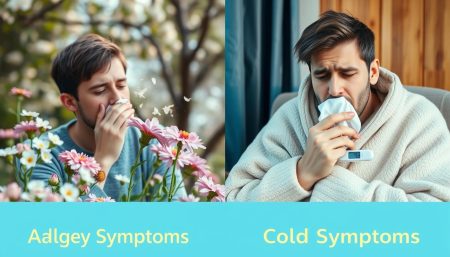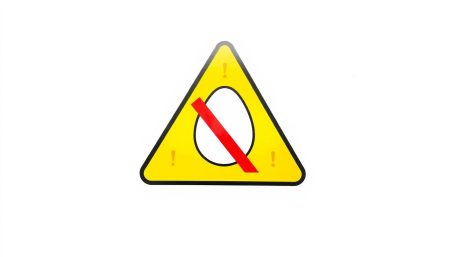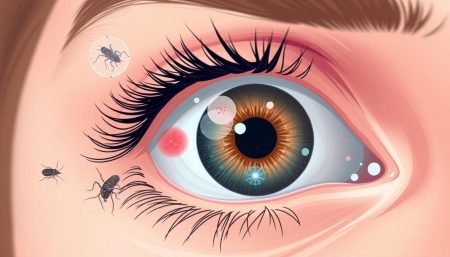Many people often ignore sneezing and sniffles, thinking they’re just minor annoyances. But, for those who pay attention to their health, these symptoms might be a sign of something bigger. This something is allergic rhinitis, also known as hay fever. It’s not as harmless as its nickname makes it sound.
Identifying allergic rhinitis is the first step to managing its effects on your life. It’s important to notice the signs your body gives you. When it meets allergens like pollen or dust mites, it fights back in its own way. This fight shows up in different symptoms.
Being aware of these symptoms can help you feel more in control. It also helps you understand what others might be going through. This understanding can bring comfort and support to those dealing with the condition.
To spot these symptoms, you need to know what to look for. This section aims to help you recognize the signs your body sends out. It’s about giving you the power to take care of yourself and seek help when needed.
Key Takeaways
- Grasping the telltale signs of allergic rhinitis is essential for early detection and management.
- Understanding the body’s immune response can inform health-conscious decisions and self-care.
- Recognizing a range of symptoms empowers individuals to seek appropriate care and treatment.
- Knowledge of allergic rhinitis offers comfort and support to those affected by the condition.
- Attentiveness to bodily reactions can lead to a more empathetic perspective on common health challenges.
Understanding Allergic Rhinitis and Its Impact on Health
Allergic rhinitis is more than just a seasonal nuisance. It deeply affects daily life and health. This condition goes beyond simple discomfort, impacting many allergic rhinitis health indicators that need careful understanding and management.
Allergic rhinitis causes an immune reaction to harmless things in the environment. This leads to symptoms that can disrupt normal life. The way these reactions affect people can vary, making it important to have personalized care plans.
| Health Indicator | Description | Impact |
|---|---|---|
| Sleep Quality | Disruption due to nasal congestion | Leads to fatigue and reduced daily functioning |
| Mental Health | Increased stress and irritability from persistent symptoms | Affects mood and psychological wellbeing |
| Physical Activity | Limited by nasal and ocular symptoms | Decreases overall fitness and health resilience |
Knowing and understanding these health indicators can greatly improve life quality. Learning about allergic rhinitis helps people manage their condition better. This way, they can lessen its effects on their daily lives and long-term health.
Recognizing the Common Symptoms of Allergic Rhinitis
For those dealing with allergic rhinitis, knowing the symptoms is key to getting help. This part talks about the usual signs that show discomfort and the need for doctor visits.
Nasal Congestion: More Than Just a Blocked Nose
Nasal congestion is often seen as a small problem. But for those with allergic rhinitis, it’s a big deal. It makes breathing hard and affects sleep and daily life, leading people to look for lasting relief.
The Itch Factor: Eyes, Nose, and Throat Discomfort
Itching in allergic rhinitis goes beyond the nose, hitting the eyes and throat too. This itchiness is not just annoying. It’s a big sign that something in the air, like pollen, is causing a reaction.
When Sneezing Becomes a Frequent Visitor
Frequent sneezing is a clear sign of allergic rhinitis. It makes people look for a allergic rhinitis diagnosis. Sneezing a lot can mess up daily life, showing how important it is to notice this symptom.
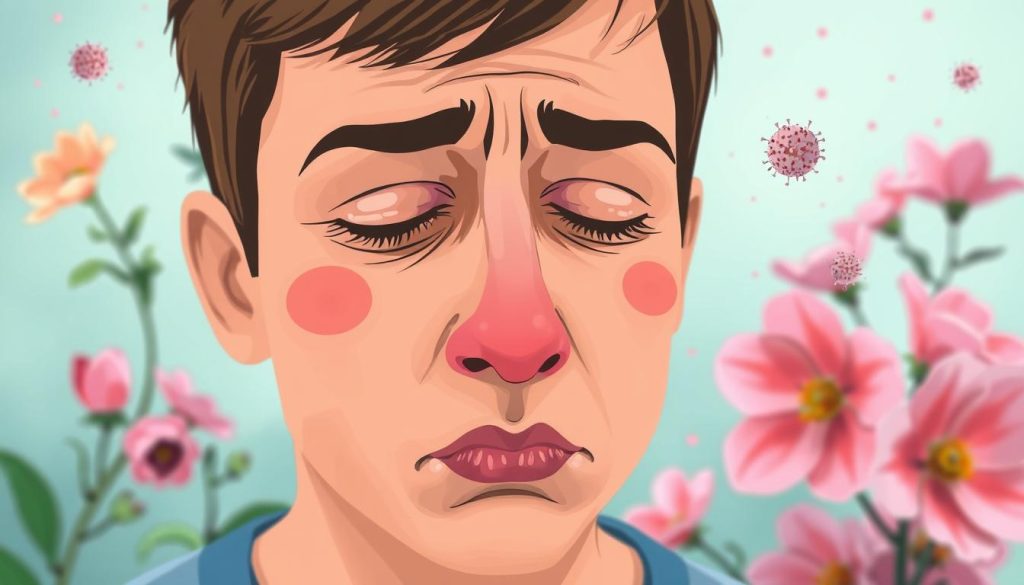
Knowing these symptoms helps people manage their condition better. It also helps others understand the discomfort of those with allergic rhinitis. Each symptom is important for health and well-being, making it crucial to be aware and educated.
Navigating Through Seasonal vs. Perennial Allergic Rhinitis
It’s important to know the difference between seasonal allergic rhinitis and perennial allergic rhinitis. Each has its own triggers and symptoms. This affects how they are diagnosed and treated.
Seasonal allergic rhinitis, also known as hay fever, happens when pollen counts are high. It’s caused by pollen from trees, grasses, and weeds. On the other hand, perennial allergic rhinitis is present all year. It’s caused by indoor allergens like pet dander, mold, dust mites, and cockroach droppings.
Here’s a table that shows the main differences between seasonal and perennial allergic rhinitis:
| Type | Common Triggers | Typical Duration | Key Symptoms |
|---|---|---|---|
| Seasonal Allergic Rhinitis | Pollen from trees, grasses, weeds | Specific seasons (Spring and Fall) | Sneezing, runny nose, itchy eyes, nasal congestion |
| Perennial Allergic Rhinitis | Dust mites, pet dander, mold, cockroach droppings | Year-round | Runny nose, postnasal drip, sinus pressure, chronic cough |
Knowing if your symptoms are from seasonal allergic rhinitis or perennial allergic rhinitis is key. Seasonal sufferers might find relief when pollen counts are low. Those with perennial types need to focus on their indoor environment.
Understanding these types of allergic rhinitis helps people get the right treatment. It also improves their quality of life by better managing symptoms.
Which Identified Clinical Manifestation is a Sign of Allergic Rhinitis
Understanding the clinical manifestation of allergic rhinitis is key. This part looks at the main signs of this condition. Knowing these signs helps in getting the right diagnosis and treatment.
The allergic rhinitis signs include many symptoms that can really affect your life. These symptoms are often overlooked. Let’s look at the main signs:
- Nasal Symptoms: Signs like sneezing, stuffy nose, and runny nose are common.
- Ocular Symptoms: Itchy, red, and watery eyes are also signs, showing it affects more than just the nose.
- Skin Reactions: In some cases, allergic rhinitis can show up as hives or eczema, especially in kids.
Studies on the cognitive and psychosocial aspects of allergic rhinitis show its impact. It shows how these signs can mess with daily life, making it crucial to spot them early.
| Manifestation | Description | Impact on Daily Life |
|---|---|---|
| Nasal Congestion | Blockage of nasal passages | Limits breathing, affects sleep |
| Itchy Eyes | Irritation around the eyes | Disrupts focus, leads to discomfort |
| Skin Reactions | Hives, eczema | Causes discomfort, affects appearance |
Knowing these allergic rhinitis signs helps in finding better ways to manage it. It’s about finding what works best for each person.
Each symptom is part of a bigger picture. By focusing on these key signs, doctors and patients can work together. This helps in creating a plan that really helps with allergic rhinitis, improving health and happiness.
Allergic Rhinitis Indicators Beyond the Nose: Key Identifiers
Allergic rhinitis is more than just a stuffy nose and sneezing. It affects many areas of our health. Knowing about these symptoms can help manage this common condition better.
Fatigue and Sleep Disturbance: The Lesser-Known Consequences
Allergic rhinitis can disrupt sleep, leading to tiredness. It’s not just the nose that’s a problem. The inflammation from allergies can make breathing hard at night. This leads to poor sleep and feeling very tired in the morning.
Ocular Symptoms: The Connection Between Eyes and Allergic Rhinitis
Eye symptoms are a big part of allergic rhinitis, but they’re often missed. People might have itchy, watery, or red eyes. These symptoms not only hurt but also make it hard to see clearly and can make you feel irritable and tired.
| Allergic Rhinitis Symptom | Impact on Daily Life |
|---|---|
| Sleep Disturbance | Impaired cognitive functions, mood swings, decreased productivity |
| Ocular Symptoms | Reduced visual clarity, frequent discomfort in eyes, need for frequent breaks when reading or using screens |
The Role of Allergens: Triggers for Allergic Rhinitis Symptoms
Allergens are a big problem for people with allergic rhinitis. Knowing what triggers your symptoms is key to feeling better. This part talks about common allergens, how they affect people, and ways to avoid them.
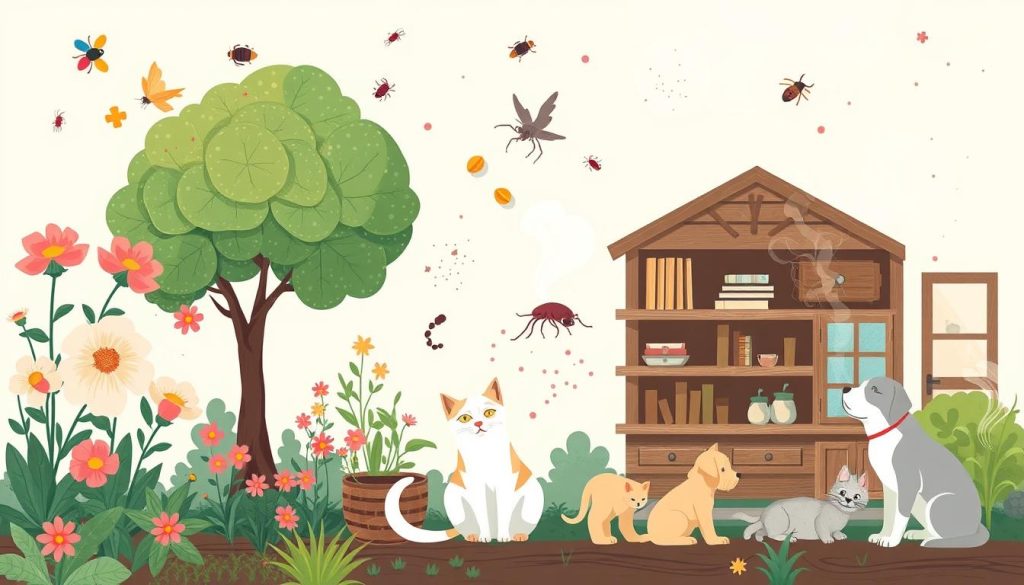
Pollen, dust mites, pet dander, and mold are common allergens. Each one causes different problems and can be a problem all year. Knowing this helps you prepare for when symptoms might get worse.
- Pollen: Often considered a major trigger, particularly during spring and summer.
- Dust mites: Thrive in warm, humid environments and are prevalent in bedding, carpets, and upholstered furniture.
- Pet dander: Pets like cats and dogs shed minute skin flakes that may provoke allergic reactions.
- Mold: Grows in damp environments and can be found both indoors and outdoors.
Knowing what triggers your allergic rhinitis is important. It helps you get ready for bad days and take steps to prevent them.
Proper identification and minimization of exposure to allergens can significantly reduce the frequency and severity of allergic reactions.
| Allergen | Description | Common Locations | Management Strategies |
|---|---|---|---|
| Pollen | Microscopic particles released by trees, grass, and weeds. | Outdoor air, especially during dry, windy days. | Keep windows closed during high pollen days; use air purifiers. |
| Dust Mites | Tiny bugs that feed on human skin flakes. | Beddings, carpets, upholstered furniture. | Use allergen-proof mattress and pillow covers; wash beddings in hot water weekly. |
| Pet Dander | Small skin flakes shed by furry animals. | Areas frequented by pets. | Regularly groom pets; vacuum spaces with HEPA filters. |
| Mold | Fungi that grow in moist environments. | Basements, bathrooms, damp areas. | Maintain humidity levels below 50%; fix leaks and dampness. |
By using these tips, people with allergies can manage their symptoms better. This makes life easier and helps avoid the discomfort of allergic rhinitis.
From Diagnosis to Management: The Journey of Living with Allergic Rhinitis
Managing allergic rhinitis starts with a clear diagnosis. This can be a big relief for those who have been suffering without knowing why. Knowing when to ask for professional help is key to handling this common condition well.
When to Seek Professional Help: Allergic Rhinitis Diagnosis
If symptoms don’t get better with over-the-counter treatments, it’s time to see a doctor. Tests can confirm allergic rhinitis. This helps find the right treatment for you.
Personalizing Your Treatment: Medication and Lifestyle Adjustments
- Pharmaceutical Treatment: Treatment for allergic rhinitis can include antihistamines, nasal corticosteroids, or leukotriene receptor antagonists. Each helps reduce symptoms.
- Lifestyle Adjustments: Changing your environment to avoid allergens is also important. Using air purifiers or hypoallergenic bedding can help manage symptoms.
Learning about and using these treatments can greatly improve your comfort and control symptoms. Thanks to ongoing research, treatment plans are getting better. This brings hope to those dealing with allergic rhinitis.
Not Just a Seasonal Woe: Complications Associated with Allergic Rhinitis
Allergic rhinitis is more than just a minor seasonal issue. It can lead to serious health problems if not managed well. It’s important to understand these complications to prevent further health issues.

Chronic allergic rhinitis can worsen or cause more serious conditions. The inflammation from allergic rhinitis can spread, affecting the respiratory tract and causing ear infections. These issues can lead to long-term respiratory problems, like chronic sinusitis.
- Sinusitis: Persistent inflammation can lead to sinus infections, which, if recurrent, can evolve into chronic sinusitis.
- Asthma: Those with allergic rhinitis are at a higher risk of developing asthma, a more serious respiratory condition that can significantly impact quality of life.
- Otitis Media: Frequent ear infections, known medically as otitis media, are also a common complication, particularly in children with allergic rhinitis.
The constant sneezing, coughing, and nasal congestion can disrupt daily life. It can cause fatigue and reduce productivity. In children, it can lead to poor grades and developmental delays.
Preventive strategies and proactive treatment are key to managing allergic rhinitis. Regular doctor visits, following treatment plans, and monitoring allergy triggers are crucial. These steps help control the condition’s impact.
Protecting against the complications of allergic rhinitis improves health and overall well-being. Being aware and educated helps patients take action early. It also encourages lifestyle changes to reduce complication risks.
Emerging Research and Understanding in Allergic Rhinitis Manifestations
In the field of recent allergic rhinitis research, big steps have been taken. These steps have given us deep insights into the causes and possible treatments for allergic rhinitis. As we learn more about understanding allergic rhinitis, doctors and scientists are finding out how environment, genes, and the immune system work together to cause this common condition.
New studies show that living in cities can make people more likely to get allergic rhinitis. This is because cities have more air pollution and allergens. This research highlights the need for treatments that take into account where people live and their lifestyle.
There’s also progress in immunotherapy in recent allergic rhinitis research. Research shows that personalized immunotherapy plans are helping patients feel better and live better lives. Understanding how allergies work at a molecular level is key to these improvements. This means we can manage allergies more effectively and with more precision.
- Identification of specific biomarkers for more accurate diagnosis
- Development of targeted immunotherapy treatments
- Longitudinal studies on the effects of climate change on allergen patterns
The findings from recent allergic rhinitis research are crucial. They help shape how we treat allergic rhinitis today and in the future. These discoveries lead to more personalized care, which is a big step forward in treating allergic rhinitis.
Healthcare providers can now offer better care to those with allergic rhinitis. This shows how important it is to keep up with research and adapt medical practices.
Conclusion
We’ve explored the complex world of allergic rhinitis, highlighting its seasonal and perennial forms. Knowing the symptoms, like nasal congestion and fatigue, is just the start. It’s crucial for a full approach to managing allergic rhinitis.
With the right diagnosis and treatment, people can improve their health. This helps reduce the impact of allergic rhinitis on daily life.
Allergic rhinitis goes beyond just being a nuisance. It can really affect someone’s quality of life. But, understanding its causes and how it affects sleep and eyes can offer hope.
By using medicine and making lifestyle changes, people can fight back against allergic rhinitis. This shows the strength of the human spirit against chronic conditions.
As research and support grow, our understanding of allergic rhinitis evolves. We urge people to get professional help and connect with others who face the same challenges. Every step forward and every success story strengthens our mission to help and educate those affected.
FAQ
Q: What are the key signs of allergic rhinitis to look out for?
A: Signs of allergic rhinitis include a stuffy nose and sneezing. You might also have itchy eyes, nose, or throat. Watery, red, or swollen eyes are other symptoms.
Q: How does allergic rhinitis affect a person’s overall health?
A: Allergic rhinitis can make it hard to sleep and concentrate. It can also make other health issues worse, like asthma or sinus infections.
Q: What are the common symptoms of allergic rhinitis?
A: Common symptoms are a stuffy nose, sneezing, and itchy eyes or throat. These signs mean you might have allergic rhinitis and need treatment.
Q: How do seasonal and perennial allergic rhinitis differ?
A: Seasonal allergic rhinitis happens in certain seasons, often due to pollen. Perennial allergic rhinitis is year-round and can be caused by indoor allergens like dust mites or pet dander.
Q: Which identified clinical manifestation is a sign of allergic rhinitis?
A: Signs include more nasal secretions and swollen nasal passages. You might also see eosinophils in your nasal secretions.
Q: Are there allergic rhinitis indicators beyond the nose?
A: Yes, signs like fatigue and sleep problems can be signs of allergic rhinitis. So can red, itchy eyes.
Q: What are the most common allergens that trigger allergic rhinitis symptoms?
A: Common allergens are pollen, mold, dust mites, pet dander, and cockroach debris. Avoiding these can help manage symptoms.
Q: When should someone seek professional help for allergic rhinitis?
A: Seek help if symptoms last a long time or get in the way of daily life. If over-the-counter meds don’t help, see a doctor.
Q: What are some of the complications associated with allergic rhinitis?
A: Complications include sinusitis and middle ear infections. Untreated allergic rhinitis can also make asthma worse.
Q: What is the latest research saying about allergic rhinitis?
A: New research looks at the genetic causes and how pollutants affect symptoms. It also explores new treatments for allergic reactions.












